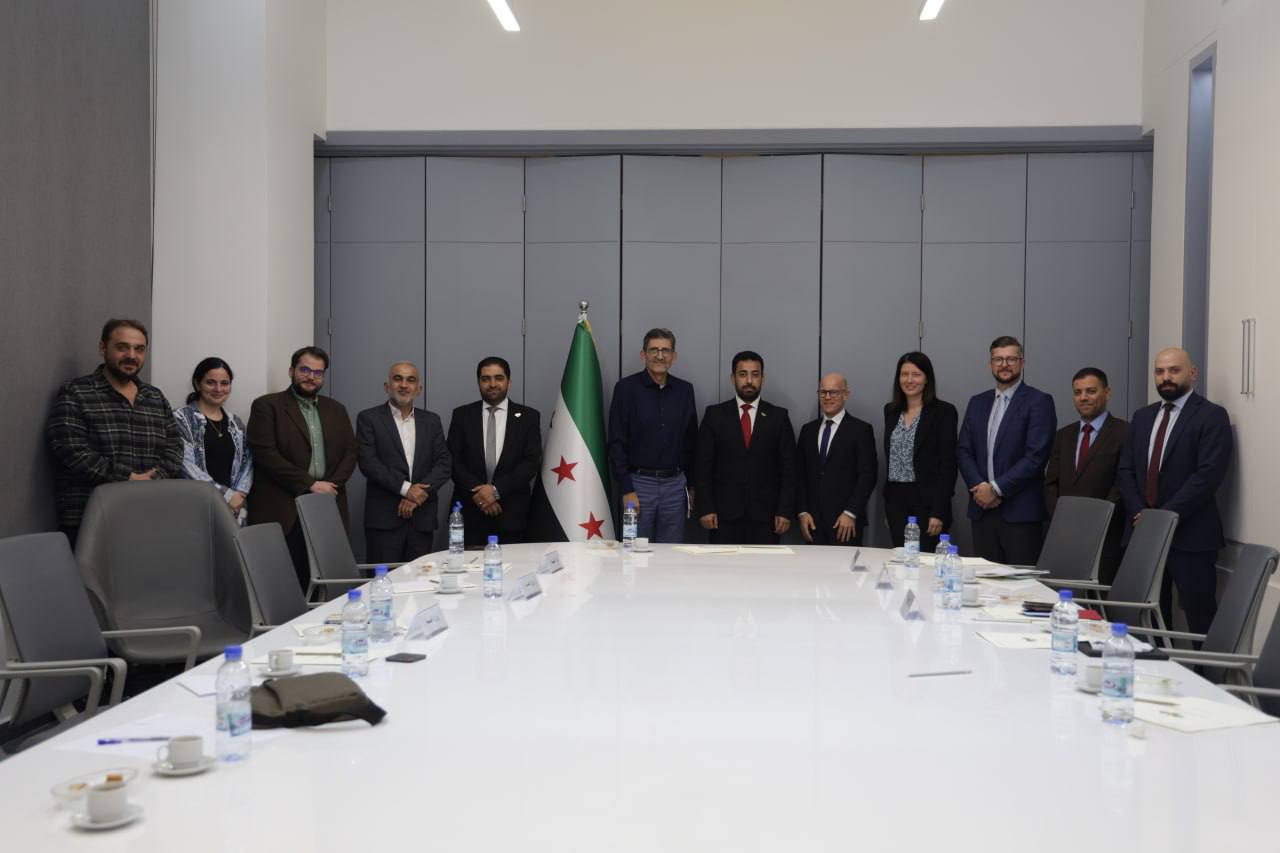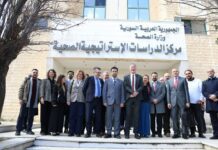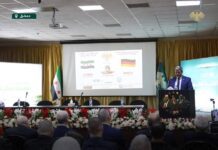 Syria is reshaping its approach to international health collaboration, moving from a recipient of aid to a proposer of partnerships. This new direction was the focus of recent meetings between Health Minister Dr. Muhammad al-Ali and delegations from Germany and the European Parliament.
Syria is reshaping its approach to international health collaboration, moving from a recipient of aid to a proposer of partnerships. This new direction was the focus of recent meetings between Health Minister Dr. Muhammad al-Ali and delegations from Germany and the European Parliament.
In a major step toward revitalizing the national health sector, Minister Ali met with representatives from the German Agency for International Cooperation (GIZ) to discuss cooperation in rebuilding and modernizing Syria’s healthcare system.
During the meeting, Ali presented the Ministry’s vision for a comprehensive, equitable, and accessible health service for all Syrians. He outlined top priorities including the restoration of damaged health facilities, strengthening of primary healthcare, expansion of mental health and cancer services, and the enhancement of pharmaceutical security to ensure a stable medicine supply chain.
He acknowledged the extensive damage sustained by the sector during years of conflict but emphasized that rebuilding “is not an end in itself but a means toward creating a health system founded on efficiency and justice.”
From Aid to Investment: A Shift in Relations
A central theme of the discussions was Syria’s intent to move beyond the traditional framework of aid. Minister Ali stressed the country’s determination to establish strategic partnerships with international actors, especially Germany, based on “the exchange of interests and long-term cooperation.”
He pointed to promising opportunities for investment in hospitals, pharmaceutical manufacturing, and healthcare technology, inviting German companies to consider Syria not merely as an aid recipient but as a partner in development.
The GIZ delegation welcomed the proposals and expressed its readiness to explore potential cooperation frameworks. Delegates confirmed they would examine possible financing mechanisms and identify health projects that could be implemented within the scope of bilateral cooperation.
Dialogue with European Parliament Reinforces Commitment
In a parallel meeting, Minister Ali hosted a European Parliament delegation led by Hannah Gloul, Vice President of the Committee on International Relations. The minister provided a candid overview of the current health landscape, revealing that 40% of health centers have been destroyed, while the remaining facilities suffer severe deterioration and shortages of medicine and qualified medical personnel.
Despite these challenges, he outlined tangible progress in the recovery process, noting that 17 new hospitals have been opened, 53 departments added to existing hospitals, and 300 health centers restored to service across the country. The European delegation pledged to advocate for support within the EU, including training programs, academic exchanges for Syrian medical professionals, and investments in health infrastructure.
Building a Resilient Health System
These high-level meetings reflect a proactive effort by Syrian authorities to rebuild one of the country’s most critical sectors. By transitioning from donor dependency to mutual partnership, Syria aims to establish a self-sustaining healthcare system that ensures long-term stability and access for its citizens.
The willingness of European partners to engage signals an opening for renewed cooperation—a step that could bring both expertise and investment to support Syria’s vision of a healthier future.








